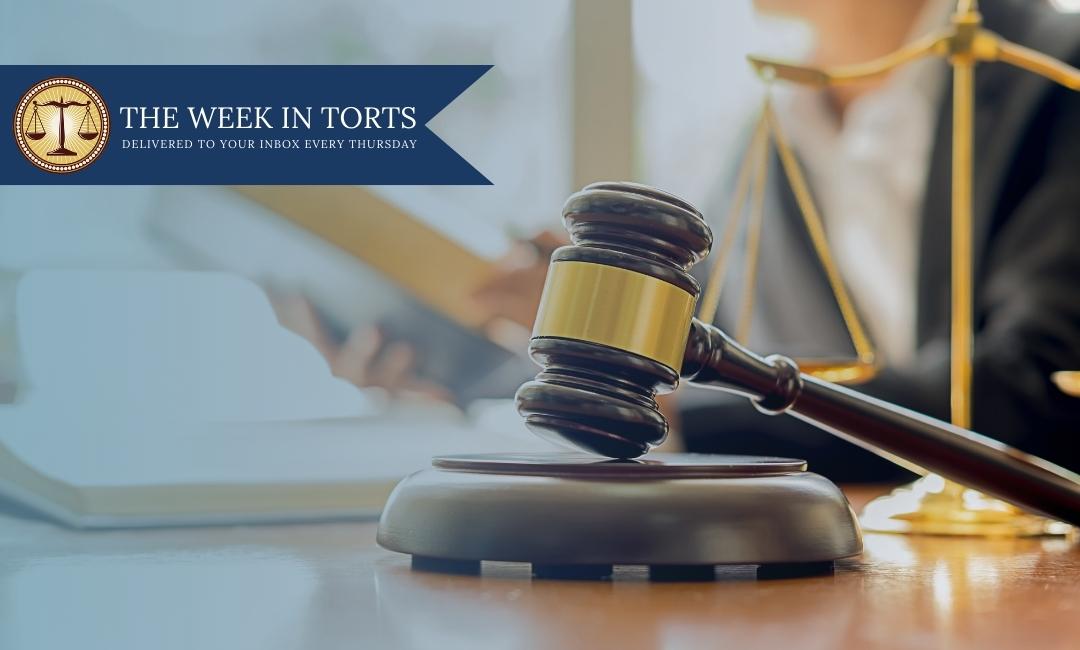The Week In Torts – Cases from August 12, 2022

I so thought this was going to go better…
FLORIDA LAW WEEKLY
VOLUME 47, NUMBER 32
CASES FROM THE WEEK AUGUST 12, 2022
THE AMOUNT OF ATTORNEY’S FEES AWARDED UNDER RULE 1.380(d) REQUIRED EXPERT TESTIMONY AS TO REASONABLENESS
Mitchell v. Flatt, 47 Fla. L. Weekly D1659 (Fla. 2nd DCA Aug. 5, 2022):
The trial court may sanction an attorney for advising his/her client not to attend a scheduled deposition. The court sanctioned the defense attorney under Rule 1.380(d).
At a second hearing on the amount of fees, plaintiff’s counsel testified regarding his billing records related to the deposition, further testifying that his fee was reasonable. Plaintiff’s counsel had engaged a fee expert to testify, but the expert was unexpectedly unavailable at the hearing, and did not testify.
While a continuance was discussed, it was not pursued, and the plaintiff’s attorney attempted to introduce the fee expert’s affidavit, drawing hearsay objections from defense counsel that the trial court sustained.
The trial court ultimately granted an award of fees for $4,695.00; the amount, submitted in the billing records.
Rule 1.380(d) provides that if a party fails to appear at a scheduled deposition after being served with proper notice, the trial court may impose sanctions, including the reasonable expenses caused by the failure to attend, which may include attorney’s fees.
However, to support a fee award, an attorney must provide a predicate of substantial competent evidence in the form of testimony by the attorney performing the services, and by an expert as to the value of the services.
Here the attorney had an expert, but upon the expert’s unexpected unavailability, went forward without seeking a continuance, fully aware of the legal insufficiency of the proof he was introducing.
To add insult to injury, the court decided not to give the plaintiff’s attorney a second bite at the apple. Because counsel had conceded in oral argument that he knew it was his obligation to present expert testimony and still made a conscious decision to forego any continuance and proceed without the necessary evidence, the court reversed the fee award without any remand for a further hearing.
COURT REVERSES TRIAL JUDGE FOR FAILING TO PROVIDE ENOUGH SPECIFICITY TO ALLOW FOR APPELLATE REVIEW OF THE ENTRY OF SUMMARY JUDGMENT
Rkhub Logistics, LLC v. Eastern Auto Motor Corp., 47 Fla. L. Weekly D1628 (Fla. 4th DCA Aug. 3, 2022):
Rule 1.510(a) requires the trial court to state on the record the reasons for granting or denying a motion for summary judgment.
Because the trial court did not include its reasons for granting the summary judgment, the appellate court reversed, remanding for it to do so. The court instructed that the trial judge may not simply state that there is no genuine dispute as to a material fact, offering its reasons on the record at the hearing or in a written order, with enough specificity as to provide useful guidance to the parties and, if necessary, to allow for appellate review.
LOSS OF BUSINESS INCOME CAUSED BY SUSPENSION OF BUSINESS OPERATIONS RESULTING FROM COVID-19 WAS NOT A COVERED LOSS UNDER A POLICY THAT EXPRESSLY REQUIRED SUSPENSION OF BUSINESS OPERATIONS
Suhaag Garden, Inc. v. Certain Underwriters at Lloyds London, 47 Fla. L. Weekly D1632 (Fla. 3rd DCA Aug. 3, 2022):
The policy at issue provided coverage for loss of income resulting from a suspension of business operations. However, the express terms of the policy required that the suspension “be caused by direct physical loss of or damage to property at premises which are described in the declarations…”
The policy language requiring “direct physical loss,” required some actual alteration to the insured property. Loss of intended use alone, without tangible alteration to the property, is not sufficient to trigger coverage under this kind of language.
COURT THREADS THE NEEDLE ON THE DUTY OWED AND SOVEREIGN IMMUNITY AS APPLIED TO POLICE OFFICERS ALLEGED TO HAVE ACTED WITH EXCESSIVE FORCE
Gualtieri v. Bogle, 47 Fla. L. Weekly D1656 (Fla. 2nd DCA Aug. 5, 2022):
A man riding his motorcycle and allegedly speeding was pulled over by a sheriff’s deputy. The deputy followed the man to an intersection, where the plaintiff claimed he was standing with his motorcycle.
According to the plaintiff, the deputy approached without warning, grabbed his arm and attempted to pull him from the motorcycle, which allegedly caused the motorcycle to fall on top of his leg, and resulted in a slice and burn of his leg.
The deputy’s arrest report stated he ordered the man to get off the motorcycle, and the plaintiff had responded by tensing and bracing his arms, instead of immediately getting off the motorcycle.
The plaintiff sued the deputy and the sheriff, asserting three counts: (1) battery against the deputy; (2) battery against the sheriff based on the actions of the deputy; and (3) negligent training against the sheriff.
The court concluded that the trial judge erred in refusing to dismiss two of the three claims. Because the battery claim against the deputy in both his individual and official capacity did not allege that the deputy acted with bad faith and malicious purpose, and none of the factual allegations included such assertions, the trial court should have dismissed it because it was not viable under §768.28(9)(a).
However, the second count asserted battery in the course and scope of the officer’s employment against the sheriff, which is actionable under the statute.
Finally, the trial court should have dismissed the negligent training count against the sheriff, because training is a discretionary function involving an exercise of executive or legislative powers, such that a court’s intervention by way of tort law would inappropriately entangle the court in fundamental questions of policy and planning. Because the decision regarding how to train law enforcement officers and what subject matter to include in the training is an exercise of governmental discretion regarding fundamental questions of policy and planning, the judge should also have dismissed count three.


